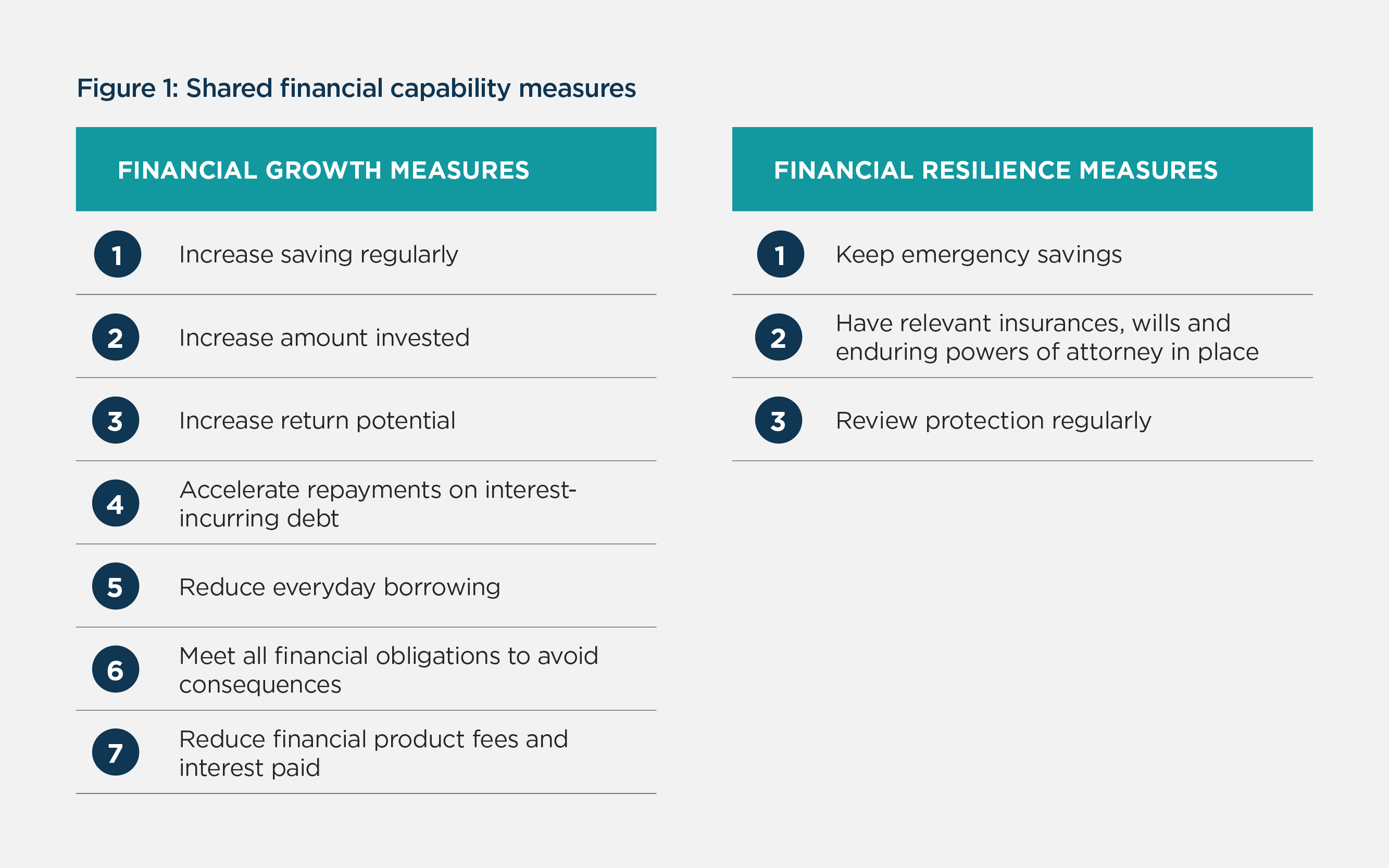Measuring financial wellbeing outcomes
Financial wellbeing is the ultimate goal of financial capability interventions, but how do we know if it’s being achieved? A consistent way to measure outcomes supports providers and educators to improve services, share findings and better understand what works. It provides a useful evidence base for campaigns, research, policy and nudges, empowering people to make better financial decisions and influencing behaviour.
Research and consultation background
How can financial capability providers use the financial wellbeing outcomes?
1. Start by determining the impact you want your programme or intervention to have, using the 10 outcome measures to guide you.
Think about whether you want to focus on a few or all of these outcomes, and if there are any additional outcomes to consider.
2. Design or adapt your intervention toward shifting these outcomes.
The 10 outcomes focus on tangible actions people can take to shift their financial wellbeing. Although we know a multitude of other factors (like having goals, implementing a budget and being in control) support financial wellbeing, these aren’t overtly captured in the outcome measures. We argue success of financial capability interventions should go beyond ‘having a goal’, ‘having a budget’ or ‘feeling more confident’ – with improved financial outcomes resulting, rather than reinforcing the status quo (or even simply ‘making ends meet’).
3. Use the customisable questionnaire to determine participants’ progress.
Invite participants to fill out the multi-choice questionnaire before and after the programme or intervention. Education programmes and one-on-one interventions could most benefit from using the questionnaire.
There are resources available to help:
- Printable questionnaire before starting an intervention
- Printable questionnaire on completion of intervention
- For access to an online questionnaire template, contact us and we can set one up and help you score it.
4. Keep in touch with us if you want to use the measurement tool, so we can support you to score results, and spotlight success across the network.
When you reach out to us, we’ll be able to:
- Help you set up the questionnaires and provide research support to score the results across the different outcomes. Scores are for provider use only.
- Work with you to understand if any amendments could be helpful, depending on your intervention type.
- Invite you to share a case study highlighting insights around what outcomes shifted as a result of your intervention, so we can learn and improve our services across the network (this is optional and can be anonymous if preferred). The case study will be spotlighted on the shared resource hub and in our email newsletter to the financial capability network of 950+ people.
- Build an online tool in the longer term that providers can access and will automate this process. In the meantime, your involvement helps us build the case to invest in this tool.



